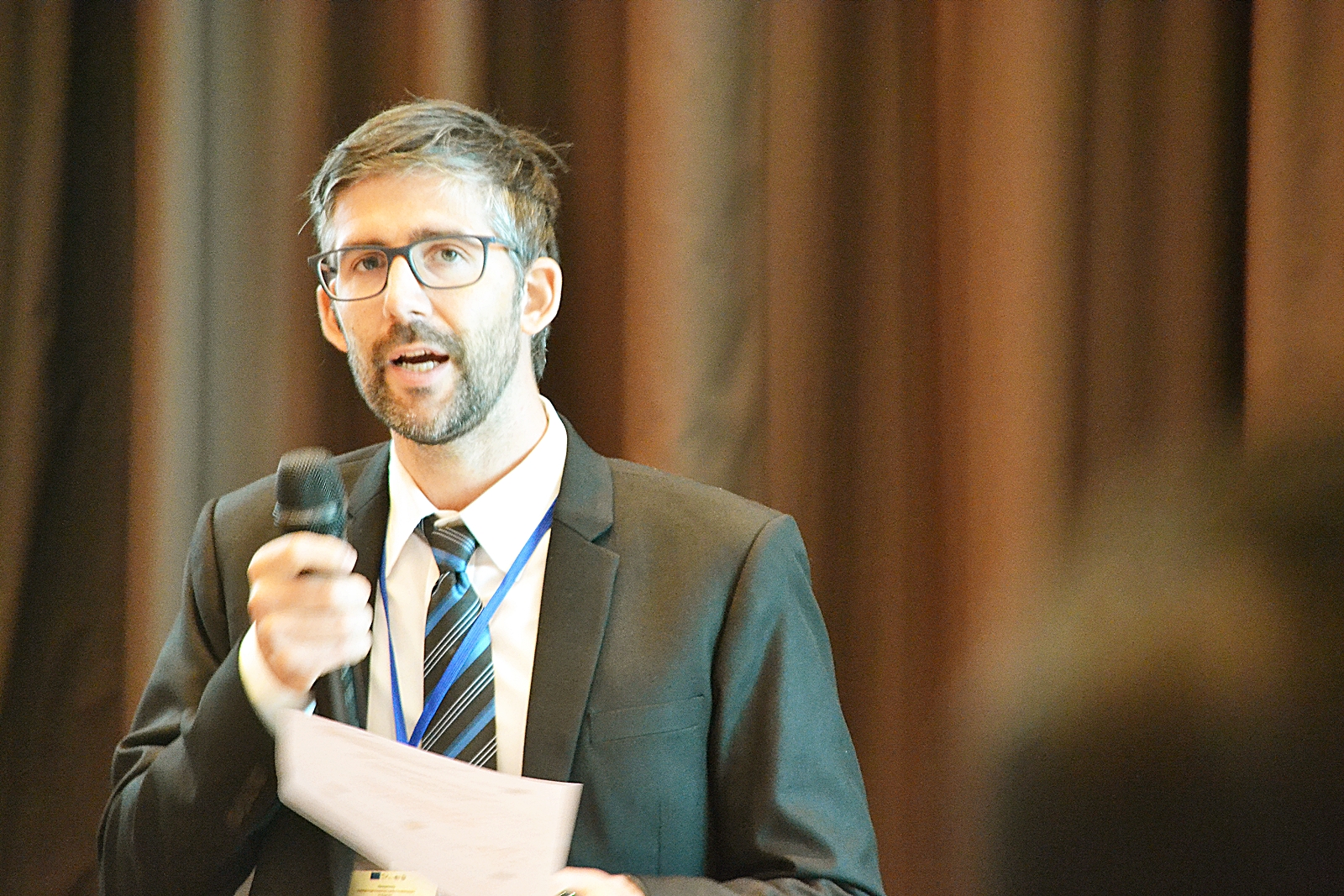For cyclist Alexander Stölting, a working day begins with a “hellish tour.” Squeezing through passing buses and frenzied tuk-tuks, he is trapped behind a smoke-belching truck. It’s only six o’clock in the morning, but the temperature is more than 30 degrees Celsius. “Biking to work here is extremely exhausting,” says Stölting, who crashed his car in a German racing competition, and does not want to give up his bike in Bangkok.
Not many people bike to work in Bangkok. Thais love to bike, but not in big cities like Bangkok. “Many Thais take bicycle tours on weekends,” says Friedel Sehlleier, who works in the Thai capital for the Society for GIZ, and advices Southeast Asian governments on sustainable transport planning.

Friedel Sehlleier
Thanks to government campaigns, bicycling is becoming more popular. Last year, hundreds of thousands of cyclists took to the streets of Bangkok to celebrate the birthdays of King Bhumibol and Queen Sirikit. Near the airport, a 20-kilometer bicycle track draws thousands of people every weekend. “It’s something I have not seen even in Germany,” said Stölting.
Bicycle lanes have been built along a number of main streets in the inner city of Bangkok, but they are not enough to serve a growing number of bicyclists. Many bicycle lanes are blocked by parked cars or vendors. A GIZ survey has found that lack of safety is one of the main reasons why a number of Bangkokians keep their bicycles at home.
Despite the hurdles, cyclists are slowing conquering Bangkok streets. This has a lot to do with the city’s worsening traffic jams. “More and more people are biking to work because it is faster,” says Pariphat Buranasin, vice-president of the Thai Cycling for Health Association.
For its part, the Thai government is doing more to promote bicycling, but its efforts have so far been ineffective. “City officials have little experience with bicycling,” said Pariphat. “Some bicycle routes are created where they are actually not needed, and they often have wrong proportions,” he added.
In his opinion, each office should ensure that there are showers in the workplace for those who come to work by bicycle.”
For their part, district officials in Bangkok should initiate pilot projects to make Bangkok cyclist-friendly, said GIZ expert Sehlleier. “Ten years ago, cities like London were a horror for cyclists, now they have become much more bicycle-friendly.”
The article is translated from http://www.zeit.de/mobilitaet/2016-09/radfahren-voraussetzungen-sydney-paris-moskau/seite-4
Written by Frederic Spohr, Bangkok